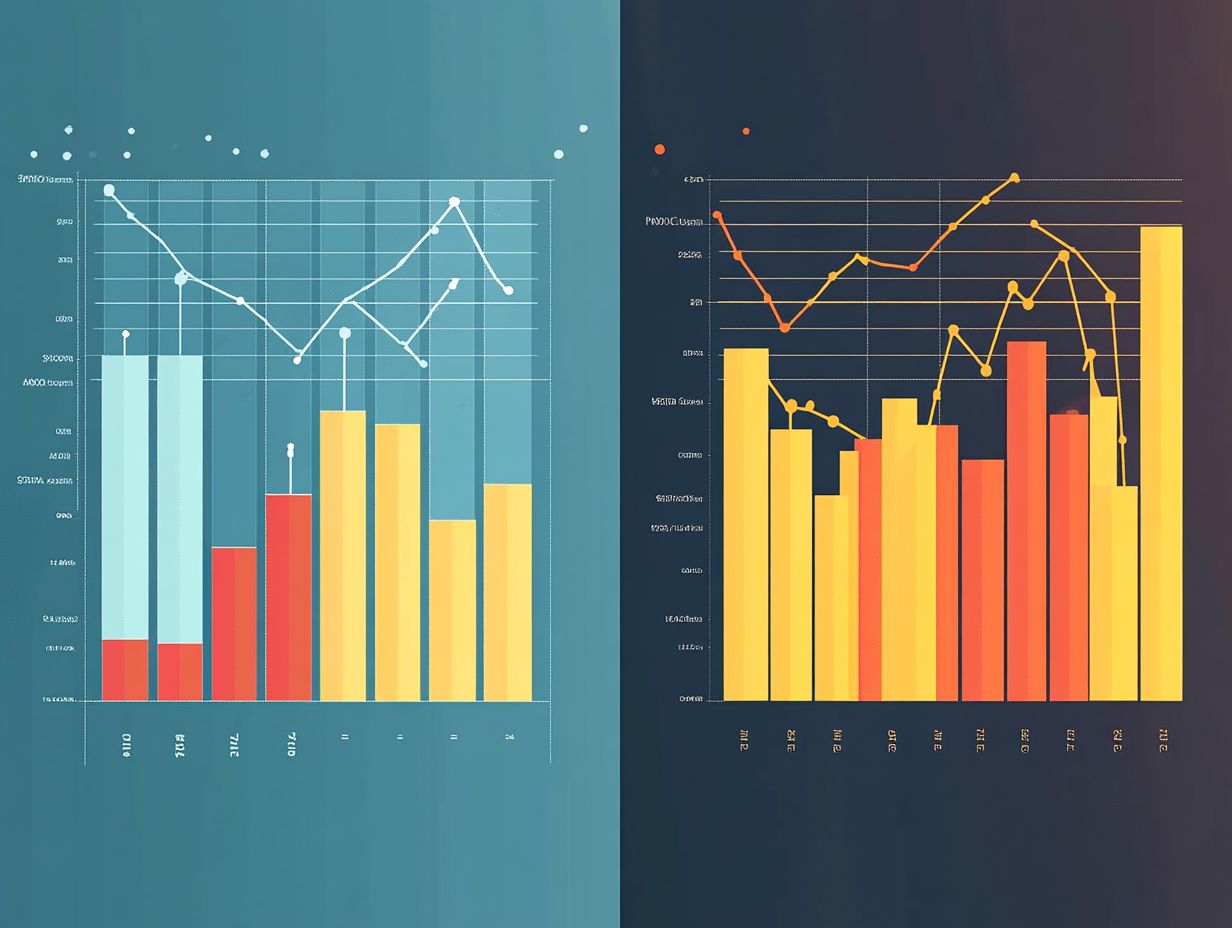How Policy Changes Affect Comparisons
Policy changes are an inherent part of governance. They profoundly shape your understanding of data and its implications.
This article delves into the essence of policy changes. We will examine the myriad factors influencing them spanning social, economic, and political realms and their significant impact on data comparisons.
Through real-world case studies, you ll discover how these shifts influence analysis and decision-making. We will explore strategic approaches to help you adapt to these changes, ensuring you remain informed and well-prepared for what lies ahead.
Contents
- Key Takeaways:
- Understanding Policy Changes
- Factors Influencing Policy Changes
- Impact of Policy Changes on Comparisons
- Examples of Policy Changes and Their Effects
- Adapting to Policy Changes in Comparisons
- Frequently Asked Questions
- How do policy changes affect comparisons?
- What types of policy changes can impact comparisons?
- Why is it important to consider policy changes when making comparisons?
- How can policy changes affect international comparisons?
- Are there any benefits to policy changes on comparisons?
- What can be done to mitigate the impact of policy changes on comparisons?
Key Takeaways:

- Policy changes greatly impact comparisons, as they affect the data and analysis used.
- Social, economic, and political factors influence policy changes, which can significantly affect comparisons.
- Staying informed and having strategies in place is important for adapting to policy changes.
Understanding Policy Changes
Understanding policy changes is essential for you as an epidemiologist or health researcher. These shifts directly influence health outcomes and the effectiveness of your health interventions. Sources of these changes include economic shifts, social movements, and legislative decisions. All can significantly steer public health initiatives.
By analyzing observational data and using simpler techniques, you can uncover the causal impact of these policy changes on health risk factors and treatment effects. This ensures that biases are kept to a minimum during your assessments.
What are Policy Changes?
Policy changes involve modifications to the regulations, rules, or guidelines governing public health initiatives. These changes can profoundly impact healthcare delivery, ultimately shaping health equity and outcomes for diverse populations.
For example, increasing tobacco taxes serves as an effective strategy to discourage smoking, especially among low-income individuals disproportionately affected by tobacco-related illnesses. Integrating poverty relief strategies into public health policies helps bridge the gap for marginalized communities, ensuring they receive the healthcare access they deserve.
By prioritizing effective policies that tackle social determinants of health, governments can create a more equitable healthcare system. This benefits all citizens and enhances overall population health.
Factors Influencing Policy Changes
Factors influencing policy changes are complex. They encompass various social, economic, and political dimensions shaping public health initiatives.
Social elements, like the health needs of the community and prevailing public opinion, often act as catalysts for legislative action.
Economic shifts, such as changes in funding for health programs or the implementation of tobacco taxes, can profoundly impact public health policies.
Political dynamics, including the priorities of elected officials and the influence of advocacy groups, are also crucial in determining which policies are enacted or refined.
Social, Economic, and Political Factors

Social, economic, and political factors are crucial in shaping health interventions that arise from policy changes. These elements dictate priorities within public health initiatives and influence how effectively they are implemented.
Social determinants like education and housing conditions contribute to health disparities. These disparities often lead to targeted policies that promote health equity. Economic factors, such as funding availability, can directly affect the scope and reach of programs tackling differences in treatment among various populations.
Political dynamics also significantly determine the extent of public health interventions. For instance, legislative efforts to expand vaccine access during health crises showcase a commitment to equitable health access for all communities.
Impact of Policy Changes on Comparisons
The impact of policy changes on comparisons within public health data analysis is profound. These shifts can reshape health outcomes that you aim to evaluate.
By leveraging observational data, you can assess the average treatment effect and the treatment effect coefficient. This enables nuanced comparisons between pre- and post-policy implementation scenarios. Variations in treatment assignment from policy changes can introduce hidden factors that can affect results, making it essential to apply robust statistical corrections for accurate understanding cause and effect.
How Policy Changes Affect Data and Analysis
Policy changes significantly influence how you conduct data analysis in public health, especially regarding understanding cause and effect.
When new regulations or shifts in legislation emerge, they can introduce biases into your datasets, making it challenging to draw accurate conclusions. Understanding treatment assignment becomes imperative, as it dictates how individuals or groups receive interventions under revised policies.
Misinterpretation can lead to erroneous findings, undermining the overall effectiveness of health initiatives. To combat these biases, methodologies like regression discontinuity and quasi-random variations are invaluable tools. They provide clearer insights by ensuring a precise evaluation of policy impacts.
These approaches enable you to isolate causal relationships, ultimately supporting better-informed public health strategies.
Examples of Policy Changes and Their Effects
Real-world examples of policy changes, especially in health interventions like tobacco laws in California, demonstrate the profound impact such policies can have on smoking rates and overall health outcomes.
By examining case studies, you gain insights into how specific legislative actions like increased tobacco taxes or smoking bans shape public behavior and health metrics. These examples highlight the essential nature of comprehensive policy assessment in grasping the wider implications for public health.
Case Studies and Real-World Examples

Case studies like California’s approach to tobacco taxes offer crucial insights into the impact of health policy changes. By examining data before and after the tax was enacted, you see significant drops in tobacco consumption and health disparities among various socioeconomic groups.
These findings show exciting opportunities for improving health equity by making healthier choices more accessible and affordable for vulnerable populations. This case serves as a compelling example of the broader implications of tobacco taxation as a public health strategy, providing valuable lessons for other states contemplating similar policies designed to reduce smoking rates and enhance overall community health outcomes.
Take action now! Consider how policy changes can directly impact your community, and explore specific policies that can improve public health.
Adapting to Policy Changes in Comparisons
Adapting to shifts in public health policy requires effective strategies for rigorous evaluation studies. As health interventions evolve, refining methodologies to address new variables is essential.
This involves employing statistical corrections to reduce biases and ensuring that your conclusions about cause and effect remain accurate, even as treatment assignments change.
Strategies for Dealing with Changing Policies
Strategies for navigating the ever-changing landscape of public health policies demand a proactive approach to analyzing data from observations.
As a health researcher, enhance your work by adopting flexible methodologies that allow real-time adjustments to shifting regulations. Actively incorporate continuous assessments into your research designs to better capture the nuances of health outcomes, ensuring evaluations remain relevant and accurate.
Utilize adaptive trial designs to respond swiftly based on new data or insights. Collaborating with policymakers is vital, as it helps align your research context with the evolving health landscape. This holistic approach preserves the integrity of your findings and amplifies their impact on public health initiatives.
Frequently Asked Questions
Here are some common questions regarding policy changes and their impact:
How do policy changes affect comparisons?

Policy changes can affect comparisons by altering the rules surrounding a specific topic, highlighting the importance of policy adjustments in comparisons and impacting the data used for comparisons.
What types of policy changes can impact comparisons?
Policy changes can range from small adjustments to major overhauls, including changes in tax laws, trade agreements, and environmental regulations.
Why is it important to consider policy changes when making comparisons?
Policy changes can significantly impact the accuracy and relevance of comparisons, altering the factors measured and the context of data analysis.
How can policy changes affect international comparisons?
Policy changes within different countries can create variations in data and regulations, making it challenging to accurately compare economic, social, or political factors between nations.
Are there any benefits to policy changes on comparisons?
While policy changes may initially disrupt comparisons, they can lead to improved data and analysis methods, providing a more comprehensive understanding of the topic.
What can be done to mitigate the impact of policy changes on comparisons?
To mitigate the impact of policy changes, carefully track and document the changes and their effects on the data. This helps clarify discrepancies or variations in the data.
Stay updated on policy changes to enhance your research outcomes!






